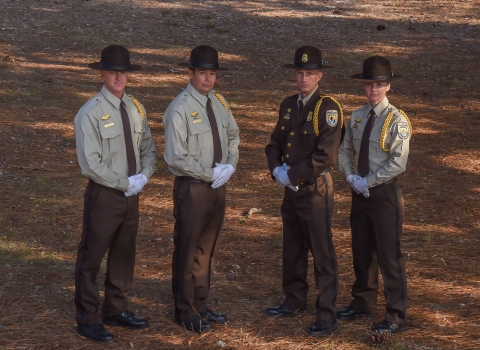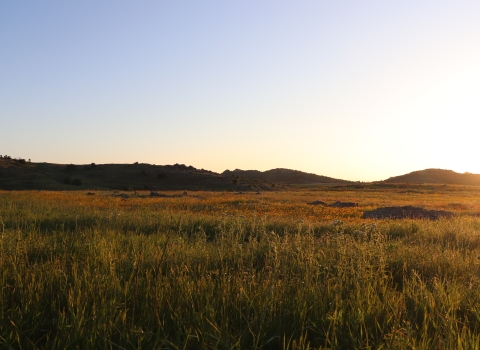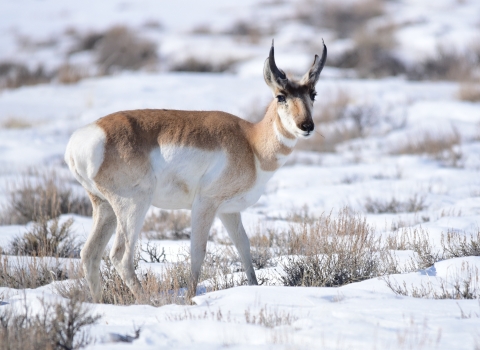The first time I experienced the services of an honor guard was one of the worst days of my life. My dad, who served in the U.S. Air Force for 22 years, died unexpectedly at the age of 59. Because of his military service, we were eligible to receive the services of the U.S. Air Force Honor Guard. On the day of his funeral, while the skies dumped torrential rain, we were escorted to the Northern California Veterans Cemetery by the Northern California Patriot Guard Riders. When we arrived at the cemetery, we were received by the U.S. Air Force Honor Guard, who would deliver ceremonial honors, including a 21-gun salute and the United States flag folding and presentation.
When I think about my father’s funeral, my grief prevented me from remembering who was in attendance or even what the funeral officiant said. What I remember was the control and discipline of the honor guard. I remember the deep voice of the gunman shouting commands just before the loud crack of the first rifle fire. I remember the way they folded the American flag, never breaking face or form. I remember the woman’s face, so porcelain and strong, as she knelt in front of my mother to present her the freshly folded flag. I remember their uniforms, so crisp and stiff.
Fast forward a year and a half, the U.S. Fish and Wildlife Service (USFWS) Honor Guard scheduled a weeklong training at the National Interagency Fire Center (NIFC) in Boise, Idaho, where I currently work. (The USFWS Honor Guard is comprised of wildland fire personnel and law enforcement personnel.) As part of my job as the Public Affairs Officer for the Branch of Fire Management with the USFWS, I help tell the story of our fire program and fire personnel. After looking over their weeklong training schedule, I knew I wanted to observe as the team practiced and perfected their drills and skills.
When I met with honor guard members on their first day of training, I was filled with anxiety, not knowing how I would emotionally handle watching them perform mock funeral honors. I worried I would be overcome with sadness as memories of my father’s funeral came back to me. Despite these fears, I was determined. I wanted to see the other side. I wanted to see how honor guard members prepared themselves to provide support for the families of those who needed it most.
After a brief welcome, I let the team know I would be popping in and out, hovering around, taking photos, and generally being a nuisance as I captured images and prepared to write a short highlight on our social media pages about the work they were doing while at NIFC. Halfway through their first day and first training session, it became clear to me this group deserved more than a simple social media shout-out.
The group began their training with a full day of basic marching and Presentation of Colors. If there’s one thing you’re most likely familiar with when it comes to any honor guard, it’s probably this. A few members line up and march several flags to the front of the room and present each flag with honor. In this case, the United States flag, the Department of the Interior flag and the U.S. Fish and Wildlife Service flag.
On days two, three and four, the Honor Guard training took a more somber tone as the team practiced carrying a casket draped in an American flag, folding the flag and presenting it, bending an honorary knee at the base of two crossed Pulaski Pulaski
The Pulaski is a special hand tool used in wildland firefighting. The tool combines an axe and an adze in one head, similar to that of the cutter mattock, with a rigid handle of wood, plastic, or fiberglass. The Pulaski is a versatile tool for constructing firebreaks, as it can be used to both dig soil and chop wood.
Learn more about Pulaski tools, carrying out a mock funeral, rifle carry and marching. Each of these acts serves to remember and honor the fallen and the families and friends of the individual.
Throughout the week, I watched as team members acted and then reenacted their duties, stopping and resetting each time something needed to be adjusted, tweaked or practiced again. Everyone was held accountable, and nothing slid by – a hand in the wrong place on a rifle or a sideways glance when some distraction arose in the corner of the room were all reasons to reset and start the drill over from the top.
By the end of the week, I began to consider what it would be like to be a part of the USFWS Honor Guard. I quickly pushed the thought aside, knowing that ever since my dad passed away, I’ve been known to cry at the smallest of things. Then I wondered how members of the Honor Guard found the strength to do what they do. Surely, at least some of them had experienced a loss like mine that would make them cry at just the sight of a sad puppy too.
“You’re not always going to be able to keep it in.”
When I asked the team how they managed to keep themselves together during funeral honors, one team member relayed that sometimes, “you’re not always going to be able to keep it in;” but these types of trainings taught them a level of discipline that helped keep their emotions under control.
“You have to be the order in their chaos,” that same team member stated, referring to the grieving family and friends of the lost loved one. “It’s not about YOU. This is literally all you can do for the family and honestly, I’m just focused on getting that right.”
Another member recounted the time he was providing honors at a funeral when he felt a wasp stinging his neck under his shirt collar. Never breaking stride or face, he continued through with his functions as the insect crawled its way from the back of his neck to the front. In the end, the little critter turned out to be a hungry caterpillar gnawing down until being casually brushed off with one swift motion of a saluting hand.
“I didn’t know they were so important.”
This year, the USFWS Honor Guard welcomed four new members to the team. I asked one why he wanted to be a part of the team. Simply put, he said: “We are all going to die. I would like to be honored like this when I die. It’s my duty to honor others while I can.”
Another member, one who has been on the team for several years, said what they do to honor those that have passed shows the importance of that person, with many family members relaying they didn’t know their family member was so important that they could receive such high honors.
Another member talked about how being in wildland fire or law enforcement made you realize you could one day be on the receiving end of honor guard services and it was a duty to give back while he could.
“The USFWS Honor Guard does more than deliver final honors.”
Sometimes, when I think about what an honor guard does, I forget they do so much more than deliver final honors to those that have died. They also serve as a connection point for grieving families. Team members called to duty will oftentimes meet with the family and spend time with them to build connection, trust, and security. For anyone who has received the services of an honor guard, they know this is above and beyond the call of duty.
The USFWS Honor Guard also represent the USFWS at celebrations and joyous events, such as a grand opening of a refuge visitor center, or a dedication, and even in parades. One team member indicated that if an event or celebration wanted honor guard to attend, they were there, even at interagency events.
“The key word is: Family.”
When talking with members of the USFWS Honor Guard, one theme kept coming up: family.
“This team is a family,” said one member. “The USFWS is a family. Families show love, respect and appreciation to one another. When someone in the USFWS family needs our support, this is how we show appreciation for their dedication and hard work.”
That honor is reflected in the way each member of the USFWS Honor Guard performs their duties with grace and poise. It’s reflected in their crisp uniforms and polished boots. And, it’s mirrored in their hearts as they continue to respond to the call of duty.
The USFWS Honor Guard is a specially trained, uniquely decorated, and highly disciplined unit that represents the positive image of the USFWS when fulfilling ceremonial duties. Their primary duty is to deliver final honors for fallen comrades. These services honor USFWS employees, as well as provide comfort and support to survivors of those who have fallen. Other duties include representing the agency at special functions.
The USFWS Honor Guard follows long-standing traditions of military burials. These high standards require above average physical ability and highly polished appearance standards. Members must be ready to represent the Service by performing with the finest discipline at a moment’s notice.




